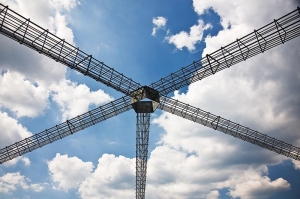Leaders,
 What drivers will impact economic activity for the long-term? It’s probably the interplay and intensity of the usual suspects: Technological advancement, volatile consumer interests, increasing customer demands, versatile competitors, disintegrated markets, natural disasters, as well as massive socio-political and socio-economic shifts. These drivers create an environment that can be characterized by the speed and significance of change, the lack of predictability and prospect of surprise, and the lack of just one right course of action.
What drivers will impact economic activity for the long-term? It’s probably the interplay and intensity of the usual suspects: Technological advancement, volatile consumer interests, increasing customer demands, versatile competitors, disintegrated markets, natural disasters, as well as massive socio-political and socio-economic shifts. These drivers create an environment that can be characterized by the speed and significance of change, the lack of predictability and prospect of surprise, and the lack of just one right course of action.
VUCA has become a popular executive acronym for this new environment, coined by the US Army War College, used to describe the rapidly transforming global business landscape. The VUCA environment calls for new tactics and methods for dealing with changing conditions, thus, challenging traditional leadership approaches and abilities. What is VUCA?
- V is for volatility. It stands for the nature, speed, volume, magnitude and dynamics of change.
- U is for uncertainty. It is the lack of predictability of issues and events.
- C is for complexity. It is characterized by the confounding of issues and the chaos that surrounds any organization.
- A is for ambiguity. It represents the haziness of reality and the mixed meanings of conditions.
What has been your organization’s way to respond to these external changes? Doing more of the same might lead to heightened internal pressure for new products, new services, new markets, new channels etc. A paradigm and mindset shift is required to be synchronized with the four components of VUCA. The key question is: Are you or is your company predominantly focused on risk or growth? That will indicate whether you view a VUCA world as opportunity or threat.
If your mindset is rather set on risk and control and you hold the belief that efficiency is the only basis for performance, you will increase controls for improvements and for more predictability of the environment. A growth mindset encourages innovation and creativity, enables new connections, empowers finding new niches, nurtures and develops new ideas, provides adequate conditions, sufficient time and space.
Surviving and thriving in a rapidly changing external environment calls for a recalibration of strategies, processes, organizational capabilities, and deployment of resources. It’s a delicate balance between growth and control, particularly as the response to the increasing pressure for growth is deeply rooted in traditional approaches and eras of stability and competition based on efficiency. How fast will we be able to realign our processes, behaviors and mindsets? What role does agility play in your organization?
VUCA triggers the necessity for focus, mental flexibility, speed, strategic thinking, intellectual curiosity, creativity, desire for learning, self-awareness and the ability to keep one’s ego in check. Are you ready for VUCA, i.e. “the new normal”? Remember: Change is necessary for us to be able to remain the same.
Coaching can help you communicate clearly and make sure your intent is understood in volatile situations; or get a fresh perspective and be more flexible during uncertainty. To respond to complexity, coaching supports collaboration, leadership development and focus. Listening skills and thinking divergently can also be practiced and developed through coaching. Just contact me.
